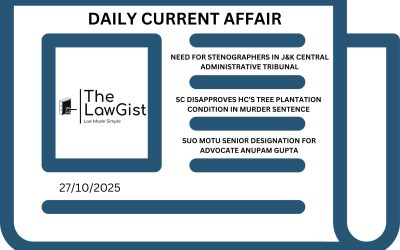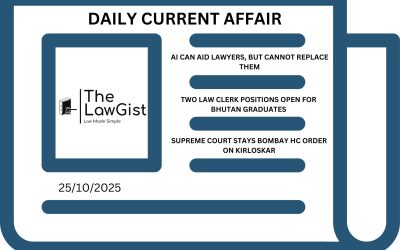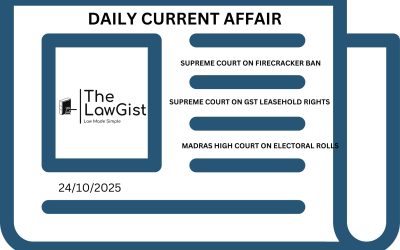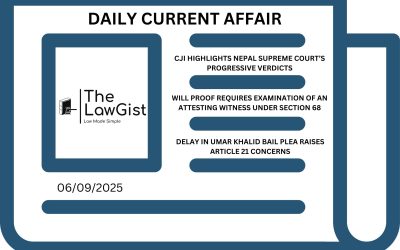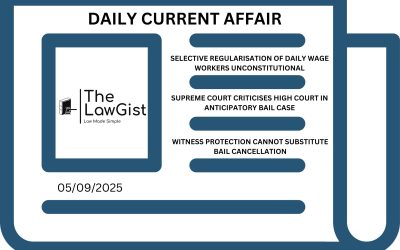
Supreme Court judgment reinforces women’s reservation in Punjab Civil Services.
SUPREME COURT RELIEF TO BENGAL GOVERNMENT- NO CBI INQUIRY INTO TEACHER POSTS
Recent Issue – The Supreme Court of India reversed the Calcutta High Court’s ruling, which ordered the CBI to look into the West Bengal government’s establishment of supernumerary positions to accommodate almost 25,000 fired teaching and non-teaching employees. The Supreme Court’s ruling that courts cannot question cabinet decisions provided the state government led by Mamata Banerjee with respite.
Background
Recruitment tests for both teaching and non-teaching positions were held in 2016 by the West Bengal School Service Commission (SSC). Despite the fact that there were 24,640 open positions, 25,753 appointment letters were sent out. Following claims that the nominations were illegitimate, there were widespread demonstrations and legal investigations.The Calcutta High Court directed a CBI investigation and ordered the annulment of all appointments when irregularities, including cheating and manipulation, were revealed. The state administration contested this order, particularly the cabinet’s decision to create new positions to accommodate the fired employees.
Key Facts
- Year of SSC Recruitment Exam: 2016
- Number of Vacancies: 24,640
- Number of Appointments Made: 25,753
- Candidates Appeared: Over 23 lakh
- SC Verdict (Previous Week): Recruitment process was vitiated by large-scale fraud and manipulation.
- CBI Probe Directed: By Calcutta High Court (on the creation of supernumerary posts).
- SC Ruling (April, 2025): Overruled High Court’s CBI order; said courts can’t probe cabinet decisions.
Legal Provisions
- Article 163 & 164 of the Constitution – Executive powers of the State and Council of Ministers.
- Article 77 & 166 – Conduct of business of the Government (Union and States respectively).
- Doctrine of Separation of Powers – Courts cannot interfere in executive (cabinet) policy decisions unless they are arbitrary, mala fide, or unconstitutional.
- Judicial Precedents:
- S.R. Bommai vs. Union of India – Limitations on judicial review of political decisions.
- Bennett Coleman vs. Union of India – Clarified the boundaries of policy interference.
- Criminal Procedure Code (CrPC), Section 156(3) – Magistrate’s power to order investigations (not applicable to cabinet decisions unless criminality prima facie exists).
Legal Safeguards
- Candidates’ Rights: Right to fair selection and due process in public employment under Article 14 and 16 of the Constitution.
- Government’s Responsibility: Ensure transparency, merit-based selection, and accountability in public recruitment.
- Judiciary’s Role: Act as a check against arbitrary or fraudulent administrative actions, while respecting constitutional boundaries.
- Legal Safeguards for Cabinet Decisions: Courts must not interfere unless there’s clear abuse of power or illegality.
Analysis
The Supreme Court’s ruling reiterates the principle of constitutional propriety and institutional limits. While it acknowledged the large-scale fraud in recruitment, it also emphasized the sanctity of the executive’s right to make cabinet decisions, such as creating posts, unless there’s evident mala fide intent.
This verdict separates administrative action from criminal liability—clarifying that while the appointments were fraudulent, the subsequent cabinet decision to create new posts was a political response that cannot be judicially reviewed in this context.However, this relief to the government does not absolve the fraudulent recruitment process itself. The Supreme Court had already quashed those appointments, signaling that due process must be restored.
Conclusion
The Supreme Court has clarified the constitution by preserving the division of powers and overturning the Calcutta High Court’s order for the CBI to look into cabinet decisions. The state administration has been given permission to continue improving the hiring procedure as part of its corrective measures. Nonetheless, the general finding that fraud and manipulation plagued the SSC recruitment process serves as a stark reminder of the necessity of open and honest public hiring procedures.
SUPREME COURT RELIEF TO BENGAL GOVERNMENT- NO CBI INQUIRY INTO TEACHER POSTS
SOURCE – SUPREME COURT OF INDIA


